Descendants of leading ‘Nazis’ unite to earn money from Joseph Goebbels’ diaries
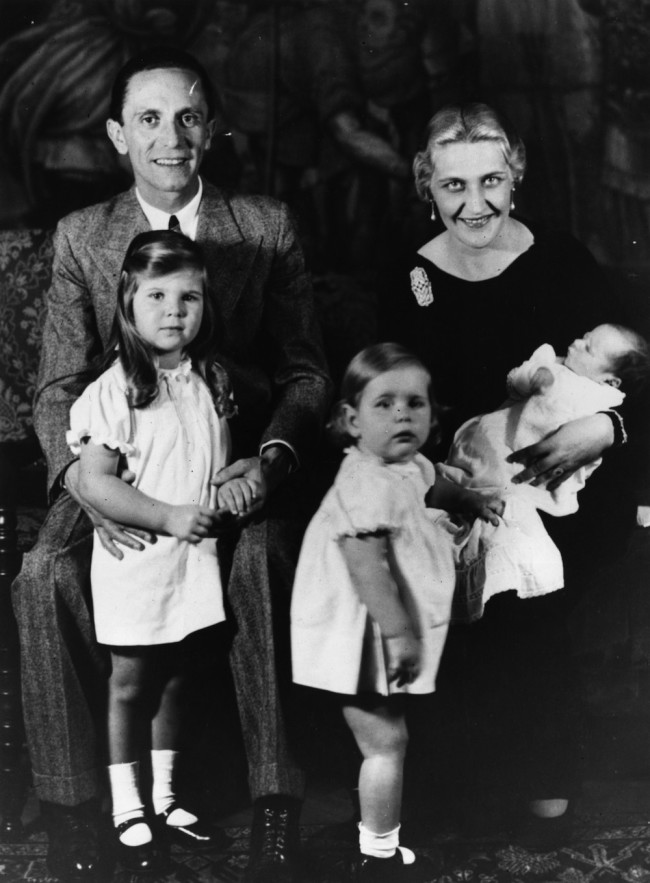
7th November 1935: German Nazi politician and minister of propaganda Paul Joseph Goebbels (1897 – 1945) with his wife and children. (Photo by Fox Photos/Getty Images)
Copyright Balls: The family of Nazi spin doctor Joseph Goebbels earn royalties from extracts of his diaries published in a new biography by Peter Longerich.
Longerich writes:
“Goebbels repeatedly seized the initiative to play a pioneering role in Nazi ‘Jewish policy’: in 1933 at the time of the Jewish ‘boycott’, in 1935 with the Kurfürstendamm riots, in 1938 when in the summer he tried to unleash a pogrom and a few months later when he played an active role in the November pogrom, and finally during the war with his continuing efforts to make Berlin ‘free of Jews’.”
The Guardian notes:
Random House Germany, had resisted demands to pay Goebbels’ estate, arguing that copyright laws should be overturned on moral grounds. But the Munich district court ruled against the publisher on Thursday, although it said the rights to Goebbels’ literary estate expire at the end of 2015 and similar cases are not expected “to any significant extent in the future”.
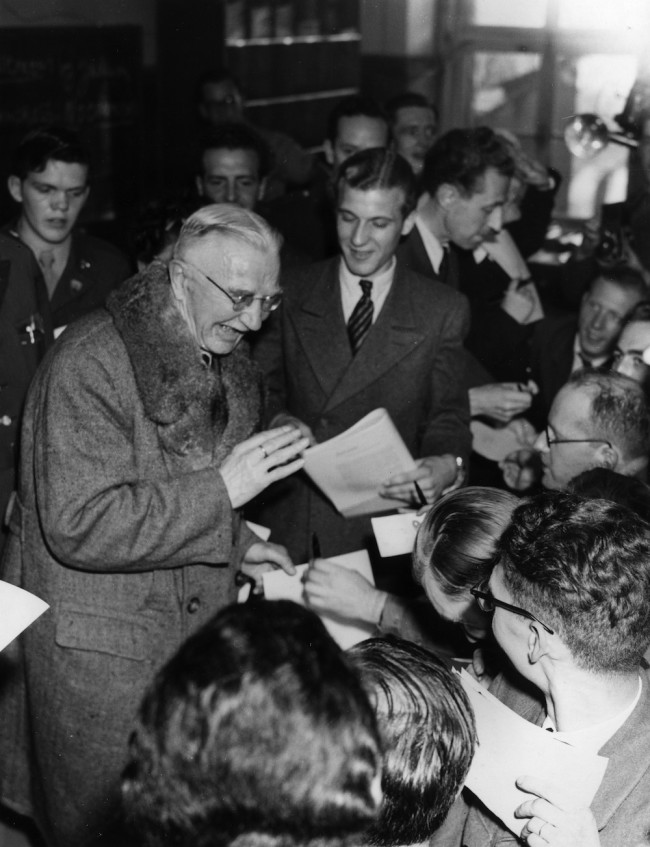
2nd October 1946: German financier Hjalmar Schacht signing autographs after he was acquitted at the Nuremberg war trials. (Photo by Fred Ramage/Keystone/Getty Images)
It’s a small world in Munich:
Cordula Schacht – a lawyer whose father, Hjalmar Schacht, was Hitler’s minister of economics – represented the Goebbels estate in taking legal action against Random House Germany and its imprint Siedler.
Hjalmar Schacht, “an active supporter of the Nazi Party before its accession to power on 30th January, 1933, who supported the appointment of Hitler to the post of Chancellor”, was acquitted of war crimes at the Nuremberg tribunals.
Rainer Dresen, the general counsel of Random House Germany, said Schacht had rejected his offer – made privately and in court – for royalties to be paid if they were donated to a Holocaust charity. Schacht insisted that money should go to Goebbels’ family, thought to include descendants of his siblings.
The case is deeply unpleasant.
David Cesarani, research chair in history at Royal Holloway. “There is no question that the heirs and estates of Nazis who left published works or unpublished writings – such as diaries, letters, prison statements – could exert a chilling effect on serious scholarship into the period, and this trend must be fought vigorously.
“In some ways, the question is less about copyright than it is about the motives for enforcing it,” he added.
“If the owners of copyright want acknowledgement or token payment, that is fair enough. If they want fees that are then paid to a good cause, that is irksome but reasonable. However, if they want to profit personally from the writings of Nazi ancestors, criminals, and/or to control the extent of usage, that is unacceptable and verges on the obscene.”
Only verges on the obscene? No. It is obscene.
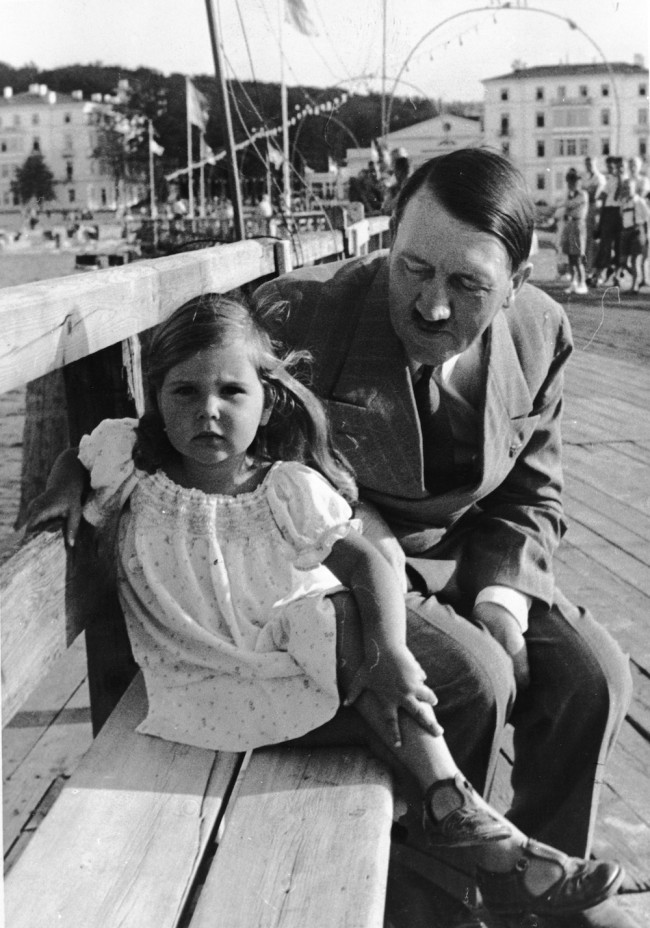
circa 1935: German dictator Adolf Hitler sitting on a bench with Helga Goebbels, daughter of Nazi propagandist Paul Joseph Goebbels. (Photo by Fox Photos/Getty Images)
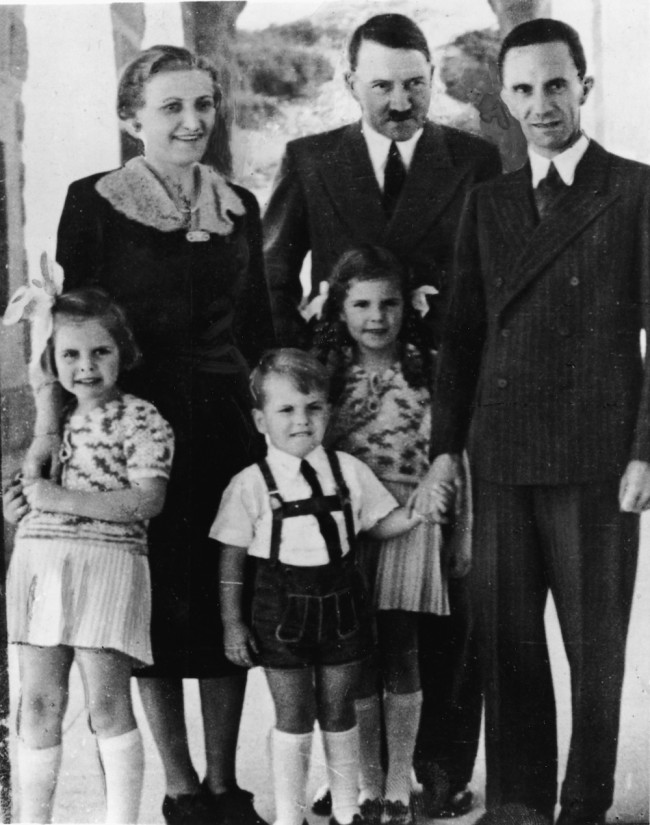
Genocidal German dictator and Nazi leader Adolf Hitler (1889 – 1945) (rear center) stands with Nazi Propaganda Minister Joseph Goebbels (1897 – 1945), his wife Magda (1901 – 1945), and their three oldest children, left to right, Hilda (1934 – 1945), Helmut (1935 – 1945), and Helga (1932 – 1945), late 1930s. (Photo by Express Newspapers/Getty Images)

German Nazi politician and minister of propaganda Paul Joseph Goebbels (1897 – 1945) with his wife Magda and their children, Helga, Hildegard, Helmut, Hedwig, Holdine and Heidrun, 1942. Also present is Harald Quandt (in uniform), Magda Goebbels’ son by her first marriage. With the fall of the Third Reich, Magda and Josef Goebbels poisoned their six children before themselves committing suicide. (Photo by Keystone/Hulton Archive/Getty Images)
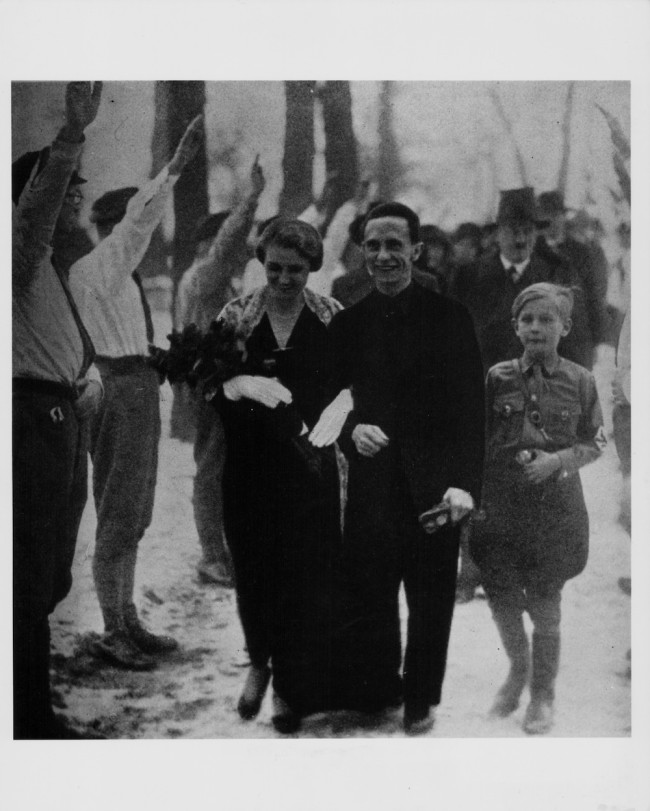
The wedding of Dr Joseph Goebbels, Reich Minister of Propaganda for the Nazi Party, with Adolf Hitler in the background, 1931. (Photo by Keystone/Hulton Archive/Getty Images)
Posted: 10th, July 2015 | In: Reviews 0 Comments | TrackBack | Permalink


